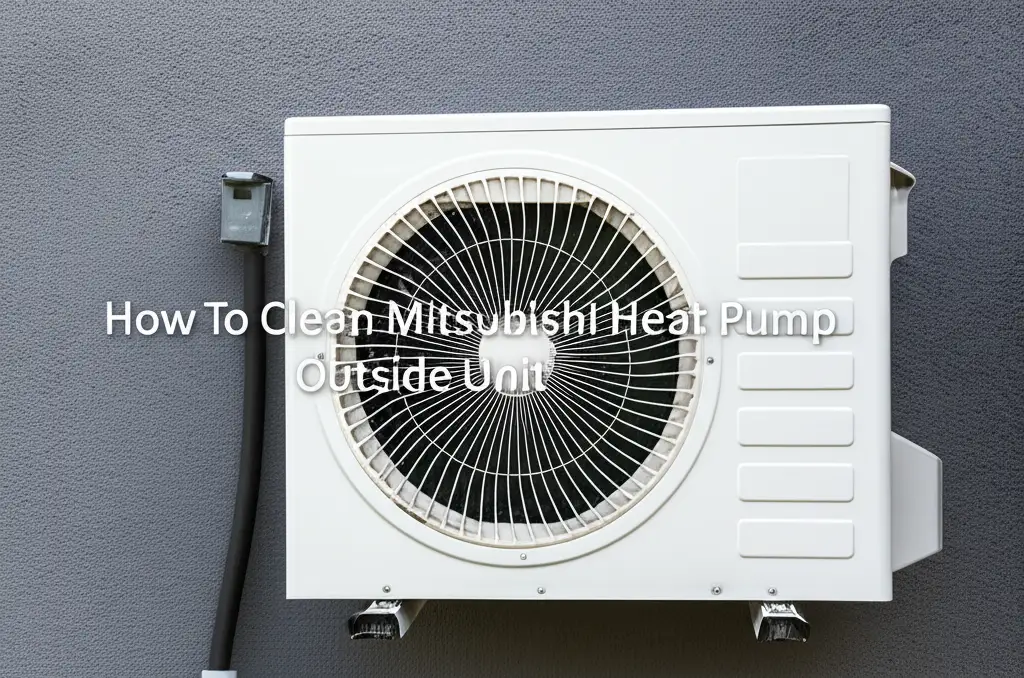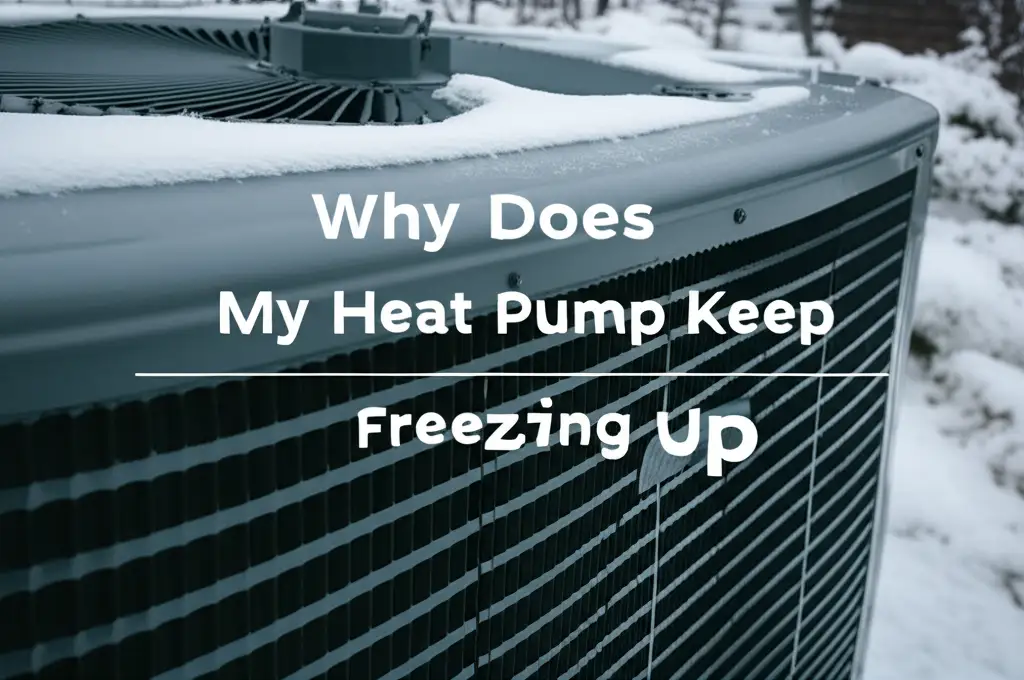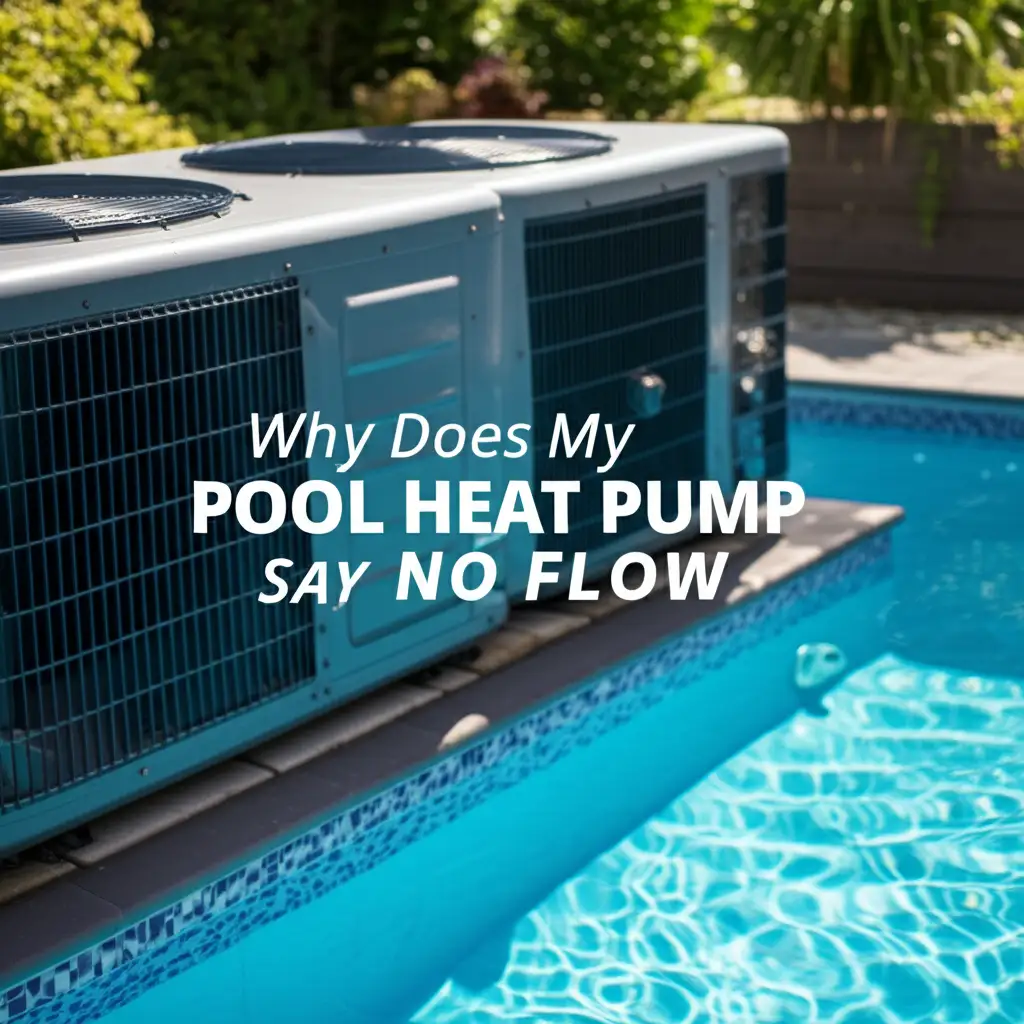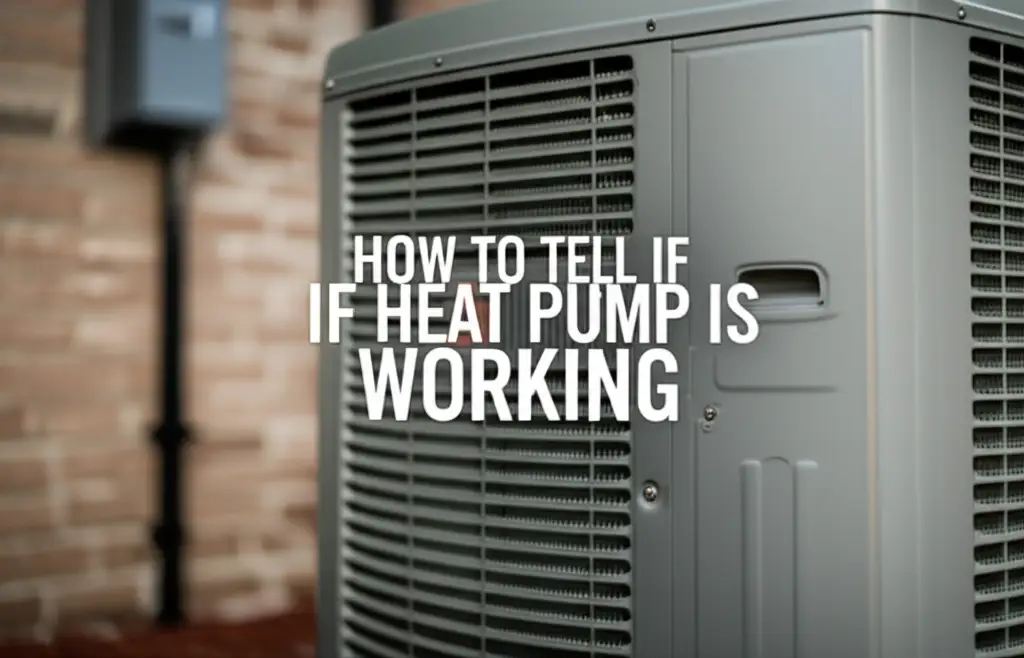· Katria Melrose · Heat Pump Maintenance · 18 min read
Why Is My Daikin Heat Pump So Noisy
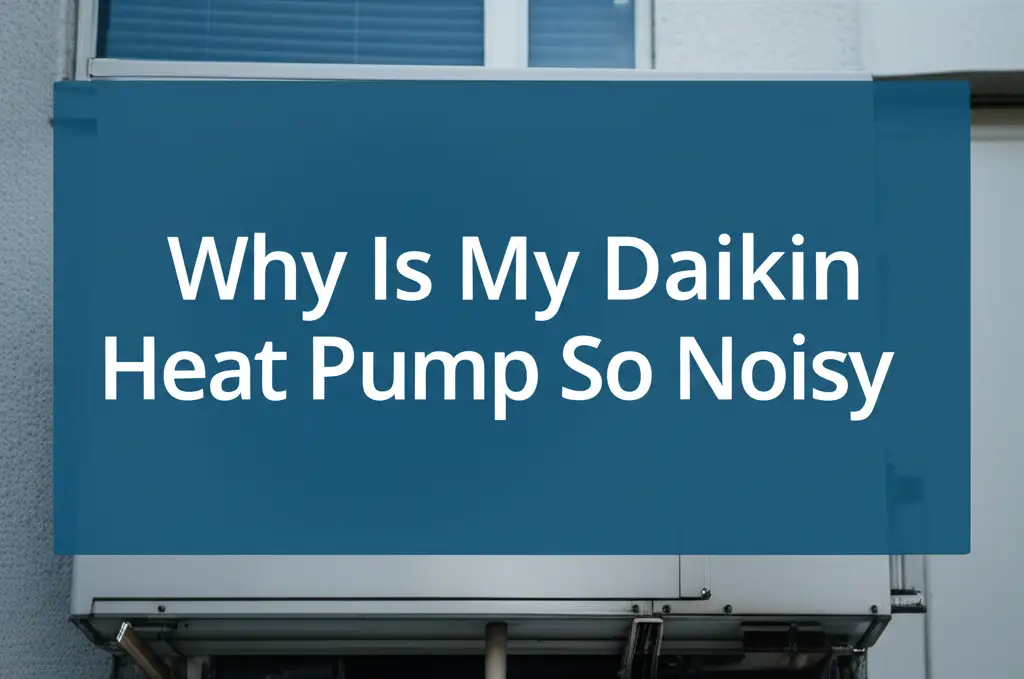
Why Your Daikin Heat Pump Is So Noisy: Understanding and Fixing Common Issues
The quiet hum of a well-functioning heat pump is a comforting sound, a sign that your home’s climate control is working as it should. But what if that familiar hum turns into something less pleasant? Perhaps you hear a rattling, a grinding, or even a high-pitched squeal. These unexpected sounds can be alarming. I understand your concern when your Daikin heat pump starts making unusual noises. It can disrupt your peace and make you worry about costly repairs.
You are likely asking yourself, “Why is my Daikin heat pump so noisy?” This guide is here to help you understand the common reasons behind these sounds. We will explore everything from routine operational noises to indicators of serious mechanical problems. My aim is to equip you with the knowledge to identify the source of the noise. We will also discuss actionable steps you can take to address the issue. By the end, you will feel more confident in diagnosing and managing the sounds coming from your Daikin heat pump system.
Takeaway
When your Daikin heat pump becomes noisy, here are the key actions to consider:
- Identify the Sound: Pinpoint the type of noise (rattling, grinding, hissing, etc.) and its location. This helps narrow down the cause.
- Perform Basic Checks: Look for loose panels, dirty filters, or obstructions around the unit. Simple issues often have simple solutions.
- Understand Normal vs. Abnormal: Recognize that some sounds are part of normal operation, especially during defrost cycles.
- Call a Professional for Serious Issues: For grinding, banging, or persistent loud noises, contact a qualified HVAC technician immediately. Ignoring these can lead to bigger problems.
Your Daikin heat pump may be noisy due to normal operational sounds like defrost cycles, minor issues such as loose components or dirty filters, or serious mechanical problems involving the fan motor, compressor, or refrigerant. Diagnosing the specific sound helps determine if professional repair is needed or if simple troubleshooting can solve the issue.
Understanding Normal Daikin Heat Pump Sounds
It is important to know that not all sounds from your Daikin heat pump indicate a problem. Heat pumps are mechanical systems. They naturally produce some noise during operation. Familiarizing yourself with these normal sounds helps you differentiate them from sounds signaling an issue. Many homeowners worry unnecessarily about everyday operational noises.
Knowing what is normal saves you time and prevents unnecessary service calls. A brand new Daikin unit or one that is well-maintained should operate with a relatively low noise level. However, certain cycles or conditions can temporarily increase this sound. Let’s look at what is typically considered normal for a Daikin heat pump.
Soft Hum and Whoosh
A gentle hum is usually present when your Daikin heat pump runs. This sound comes from the compressor and the fan motor working. It indicates the system is actively moving refrigerant and circulating air. You might also hear a soft whooshing or rushing sound. This is the sound of air moving through the ductwork.
These sounds are consistent and low in volume. They typically do not bother anyone. They are simply part of the heat pump doing its job. Think of it as the sound of energy transfer happening.
Defrost Cycle Noises
Heat pumps frequently enter a defrost cycle, especially in colder weather. This process removes ice buildup from the outdoor unit’s coil. During a defrost cycle, you might hear a louder hum, a slight hissing, or a whooshing sound. Sometimes, there is a distinct click as the reversing valve shifts.
This is a completely normal function. The unit must defrost to maintain efficiency. The sounds usually last for a short period, typically 5 to 15 minutes. If you are curious about what happens when your heat pump needs to defrost or if it’s freezing up, you might find more information on how to keep your heat pump from freezing up. This helps confirm if the sounds relate to ice issues.
Common Noises Indicating Minor Issues
While some noises are normal, others suggest a minor issue. These problems might not stop your Daikin heat pump from working immediately. However, they can reduce efficiency or lead to bigger problems if ignored. Often, you can resolve these minor issues yourself with a bit of troubleshooting. It is helpful to pay attention to these sounds early.
Early detection can prevent a small problem from escalating. I always recommend addressing these sounds promptly. They act as warning signals. Let’s explore some common noises and what they usually mean for your Daikin system.
Rattling or Vibrating Sounds
A rattling sound often indicates something is loose. This could be a loose panel on the outdoor unit or a fan blade hitting debris. Vibrations can also cause rattling. Check the screws on the access panels. Ensure the unit is sitting on a level surface.
Sometimes, leaves, twigs, or other debris get caught inside the outdoor unit. This can interfere with the fan blades. Carefully power down the unit and remove any obstructions. If the indoor unit is rattling, check the air filter. A dirty filter can restrict airflow and cause the fan to strain.
Buzzing or Humming Noises
A louder-than-normal buzzing or humming can point to electrical issues. This might be a failing capacitor or a loose wire. It could also suggest a motor bearing is wearing out. Sometimes, it is just the refrigerant lines vibrating against each other.
If the buzzing is coming from the outdoor unit, check for loose parts near the compressor. A persistent loud buzz needs professional attention. If your Daikin heat pump keeps turning off, a buzzing sound could be related to electrical overload or a failing component. You can read more about this at why does my Daikin heat pump keep turning off. This gives more insight into related electrical problems.
Squealing or Chirping Sounds
Squealing or chirping noises usually point to problems with a motor. The most common culprit is the fan motor. The bearings in the fan motor might be wearing out. This creates friction and a high-pitched sound. These sounds often intensify as the fan spins faster.
Replacing the motor bearings or the entire fan motor assembly often fixes this. This type of repair usually requires a professional. Ignoring a squealing motor can lead to complete motor failure. This would leave your system unable to move air effectively.
Gurgling or Hissing Sounds
Gurgling noises typically indicate air in the refrigerant lines. This can happen if the system has a leak or was not properly charged during installation. Hissing sounds also suggest a refrigerant leak. A significant leak can cause the system to lose efficiency or stop cooling/heating properly. If your Daikin heat pump is blowing cold air when it should be heating, a refrigerant leak could be the reason, often accompanied by hissing. For more details on this specific issue, you might want to review why is my Daikin heat pump blowing cold air. This provides context for refrigerant problems.
Refrigerant leaks are serious. They should always be addressed by a certified HVAC technician. They can pinpoint the leak, repair it, and properly recharge the system. Refrigerant is a harmful chemical, so DIY attempts are not recommended.
Serious Noises Requiring Professional Attention
Some sounds are immediate red flags. These noises suggest a significant mechanical failure or a serious problem. Ignoring them can lead to extensive damage to your Daikin heat pump. It could even necessitate a full system replacement. When you hear these sounds, turn off your unit immediately.
Contact a professional HVAC technician as soon as possible. I cannot stress enough the importance of not running the unit when these severe noises are present. Running a damaged component can cause a cascade of failures. This greatly increases your repair costs.
Grinding or Screeching
Grinding or screeching noises are very serious. They usually mean something inside the unit is failing mechanically. The compressor or a fan motor could have damaged bearings. These sounds indicate metal-on-metal contact. This causes significant wear and tear.
If you hear grinding, turn off the heat pump at the thermostat and the circuit breaker. Running it further could destroy the compressor, which is the most expensive component to replace. This sound is a clear signal for immediate professional help.
Loud Clanking or Banging
Loud clanking or banging sounds are alarming. They often point to a loose or broken part inside the outdoor unit. A fan blade might have come loose and is hitting the casing. A connecting rod inside the compressor could be damaged.
These sounds indicate forceful impacts within the system. They need immediate investigation by a professional. Continuing to run a unit with a banging sound will cause more damage. This might affect your Daikin unit’s heating capability. If your Daikin AC is not working in heat mode, a severe mechanical issue could be the cause. Check why is my Daikin air conditioner not working in heat mode for related information on system failures.
Continuous Whistling or High-Pitched Squeal
While a slight hiss can indicate a refrigerant leak, a continuous, high-pitched whistling or loud squeal suggests a more significant pressure issue. This might be a restricted refrigerant line or a faulty expansion valve. These components regulate refrigerant flow and pressure.
Excessive pressure buildup or restriction causes these piercing sounds. Such issues can severely compromise system performance and safety. They require immediate professional diagnosis and repair. Do not attempt to fix these yourself due to the high pressures involved.
Component-Specific Causes for Noisy Daikin Heat Pumps
A Daikin heat pump has several key components. Each component can be a source of noise if it malfunctions. Understanding which part might be causing the sound helps in diagnosing the problem. It also helps explain the technician’s findings. I find that knowing the possible source empowers homeowners.
This knowledge also allows you to communicate more effectively with service professionals. We will look at how issues with the fan motor, compressor, refrigerant, and even ductwork can contribute to unusual sounds. Pinpointing the component helps in a focused approach to repair.
Fan Motor Problems
The fan motor in both the indoor and outdoor units is a common source of noise. In the outdoor unit, the fan draws air over the coil. In the indoor unit, it blows conditioned air into your home. If the fan motor bearings wear out, they can produce squealing, grinding, or chirping noises.
Sometimes, the fan blades themselves become unbalanced. This can cause a rattling or vibrating sound. Debris caught in the fan can also lead to noisy operation. If you notice your heat pump’s fan running continuously when heat is on, but it’s making strange noises, it might be a motor issue. To understand normal fan operation, refer to does heat pump fan run when heat is on. This helps differentiate normal fan sounds from problematic ones.
Compressor Troubles
The compressor is the heart of your Daikin heat pump. It pressurizes the refrigerant. A healthy compressor typically emits a low hum. However, if the compressor is failing, it can produce a range of disturbing sounds. These include grinding, banging, clicking, or even a loud buzzing.
These noises often indicate internal mechanical failure. It could be worn bearings, a broken piston, or electrical issues within the compressor itself. Compressor replacement is a major repair. It can be quite expensive. Early detection of these sounds is crucial to prevent further system damage.
Refrigerant Issues
The refrigerant circulates through the system, absorbing and releasing heat. Issues with refrigerant can manifest as various noises. A gurgling or bubbling sound often indicates low refrigerant levels or air trapped in the lines. This means the system is not fully charged or has a leak.
A high-pitched hissing or whistling usually points to a refrigerant leak. Leaks not only cause noise but also reduce your heat pump’s efficiency. They can also damage the compressor. Proper refrigerant levels are vital for system health and quiet operation.
Ductwork and Airflow
Sometimes, the noise does not come from the heat pump unit itself. It originates from the ductwork. Improperly sized or installed ducts can cause air turbulence, leading to whistling or humming sounds. Loose duct connections can also rattle or vibrate.
These noises become more pronounced when the fan is running at high speed. Issues with airflow, such as dirty air filters, can also cause the fan to work harder. This increases the sound it produces. Regularly checking your air filters and ensuring ducts are sealed can mitigate these noises.
Impact of Installation and Maintenance on Heat Pump Noise
The initial installation quality and ongoing maintenance significantly affect how quietly your Daikin heat pump operates. A poorly installed unit might be noisy from day one. Skipping regular maintenance can lead to wear and tear. This creates many types of unusual sounds over time. I have seen many cases where noise issues could have been prevented.
Proper care is not just about efficiency. It is also about ensuring a peaceful home environment. Understanding these factors helps you appreciate the importance of professional installation and consistent upkeep. Let’s delve into how these aspects contribute to your Daikin heat pump’s sound levels.
Improper Installation
Faulty installation is a major cause of noise. If the outdoor unit is not level, it can vibrate excessively. This leads to rattling or humming sounds. Loose electrical connections can cause buzzing noises. Incorrect refrigerant charging during installation can also lead to gurgling sounds later on.
Furthermore, if the unit is too close to your home’s structure or if vibration dampeners are not used, noise can transmit directly into your living space. Ensuring a professional, experienced installer performs the setup is vital for a quiet system.
Lack of Regular Maintenance
Skipping routine maintenance allows small problems to become big, noisy ones. Dust and dirt accumulate on components. This causes increased friction and wear. Lubrication points can dry out. Fasteners can loosen over time.
Regular tune-ups include checking these points. They involve cleaning, tightening, and lubricating parts. Neglecting these tasks means your Daikin heat pump works harder. This increases stress on components and generates more noise. Regular maintenance is a small investment for long-term quiet operation.
Dirty Coils and Filters
Dirty coils severely restrict airflow. When the outdoor coil is dirty, the heat pump struggles to exchange heat. This forces the compressor to work harder, generating more noise. The indoor evaporator coil can also accumulate dirt. This impedes airflow and makes the fan motor strain.
A clogged air filter is one of the most common reasons for increased indoor unit noise. The fan motor works harder to pull air through the dirty filter. This causes a louder hum or whistle. Regularly cleaning your heat pump coils and changing air filters is a simple yet effective way to maintain quiet operation. For guidance on cleaning your coils, check out how to clean heat pump coils. This can directly impact noise levels.
Troubleshooting Your Noisy Daikin Heat Pump
When your Daikin heat pump starts making unusual noises, it is natural to want to identify the problem yourself. While some issues require professional expertise, many minor noise problems can be addressed with simple troubleshooting steps. I always advise caution and safety first. Before you touch anything, always turn off the power to your unit at the thermostat and the circuit breaker.
This section will guide you through basic checks you can perform. It also helps you determine when it is time to call a certified technician. Performing these steps can save you time and money. It also helps you understand your system better.
Basic Checks You Can Perform
You can start with a visual inspection. Look for obvious issues around the outdoor unit.
- Check for Debris: Look for leaves, twigs, or other objects inside the outdoor unit near the fan blades. Carefully remove any obstructions.
- Inspect Fan Blades: Ensure the fan blades are not bent or loose.
- Tighten Loose Panels: Feel around the outdoor unit for any loose panels or screws. Tighten them with a screwdriver.
- Change Air Filter: A dirty air filter restricts airflow and can make the indoor fan work harder and noisier. Replace it regularly.
- Check Refrigerant Lines: Listen for obvious hissing sounds around the refrigerant lines, which might indicate a leak. Look for ice buildup on the outdoor coil.
- Level the Unit: Use a level to ensure the outdoor unit is sitting flat. If it is uneven, the compressor can vibrate excessively. You might need to add a shim.
These simple steps can often resolve common noise issues. If these checks do not quiet your Daikin heat pump, the problem might be more complex.
When to Call a Certified Technician
Some noises and issues are beyond DIY capabilities. If you hear any of the following, call a professional immediately:
- Grinding or Screeching: These sounds indicate severe mechanical failure.
- Loud Clanking or Banging: A broken internal component usually causes this.
- Continuous Hissing or High-Pitched Squeal: This suggests a significant refrigerant leak or pressure problem.
- Electrical Buzzing: This could be a failing electrical component, which is a fire hazard.
- Persistent Noise After Basic Checks: If simple troubleshooting does not fix the problem, a deeper issue is likely present.
Professional technicians have specialized tools and training. They can accurately diagnose and safely repair complex heat pump issues. Attempting these repairs yourself can lead to further damage. It can also void your warranty. They can also help if your Daikin heat pump keeps turning on and off, as this issue can be related to deeper mechanical or electrical problems. For more information, see why does heat pump keep turning on and off.
Preventative Measures to Keep Your Daikin Heat Pump Quiet
The best way to address a noisy Daikin heat pump is to prevent the noise from starting. Proactive measures save you money and ensure consistent comfort. Investing in regular maintenance and smart system management pays off. It extends the life of your unit and keeps it running quietly. I always recommend a preventative approach to homeowners.
This section outlines key strategies. These strategies help minimize noise issues and maintain your Daikin heat pump’s optimal performance. By following these tips, you can enjoy a quiet and efficient heating and cooling system for years.
Regular Professional Servicing
Scheduling annual or bi-annual professional maintenance is crucial. During these visits, a certified technician will:
- Inspect all components: They check for wear and tear on fan motors, compressors, and electrical parts.
- Clean coils and components: This prevents dirt buildup that can lead to strain and noise.
- Check refrigerant levels: They ensure proper charge and look for leaks.
- Lubricate moving parts: This reduces friction and prevents squealing sounds.
- Tighten electrical connections: This eliminates buzzing from loose wires.
- Test system operation: They ensure all cycles, including defrost, function correctly.
These comprehensive checks catch minor issues before they become major, noisy problems.
DIY Maintenance Checklist
While professional servicing is essential, you can do many things yourself to keep your Daikin heat pump quiet.
- Change air filters regularly: Check monthly and replace every 1-3 months, depending on usage and household conditions.
- Keep outdoor unit clear: Remove leaves, grass clippings, and other debris from around the unit. Maintain at least two feet of clearance on all sides.
- Clean outdoor coil: Gently spray the coil with water to remove surface dirt. Do this annually.
- Inspect for loose panels/screws: Periodically check and tighten any fasteners on the unit’s casing.
- Clear condensate drain line: Prevent clogs that can cause gurgling sounds.
- Monitor unusual sounds: Pay attention to new noises and address them promptly.
These simple tasks contribute significantly to your system’s longevity and quiet operation.
Proper System Sizing and Placement
If you are installing a new Daikin heat pump, proper sizing and placement are vital for long-term quiet operation. An oversized unit will short cycle. It turns on and off too frequently. This causes unnecessary noise bursts and wears down components faster. An undersized unit runs constantly, leading to excessive noise and strain.
Proper placement means the outdoor unit is on a solid, level pad. It should be away from windows or outdoor living areas if possible. Vibration dampening pads can further reduce noise transmission. Discussing these aspects with your HVAC professional before installation can ensure you get the quietest system possible.
FAQ Section
Is a noisy Daikin heat pump always a serious problem?
No, a noisy Daikin heat pump is not always a serious problem. Some sounds are part of normal operation, like a soft hum or noises during the defrost cycle. Minor issues like loose panels or dirty filters can also cause noise. However, loud grinding, banging, or persistent high-pitched squeals often indicate serious mechanical failures that need immediate professional attention.
How often should my Daikin heat pump be serviced to prevent noise?
Your Daikin heat pump should be professionally serviced at least once a year. Ideally, a bi-annual tune-up is recommended, typically in the spring before the cooling season and in the fall before the heating season. Regular maintenance helps prevent noise by keeping components clean, lubricated, and functioning correctly, catching small issues before they escalate.
Can I fix a noisy Daikin heat pump myself?
You can fix some noisy Daikin heat pump issues yourself. This includes tightening loose panels, removing debris from the outdoor unit, or changing a dirty air filter. However, for complex issues involving the compressor, fan motor bearings, or refrigerant leaks, it is crucial to call a certified HVAC technician. Attempting these repairs without proper training and tools can cause further damage or pose safety risks.
What’s the difference between normal heat pump sounds and alarming noises?
Normal heat pump sounds include a consistent, soft hum from the compressor and fan, and temporary whooshing, clicking, or hissing during defrost cycles. Alarming noises are typically sudden, loud, or persistent. These include grinding, screeching, banging,
- Daikin heat pump noisy
- heat pump troubleshooting
- HVAC noise
- Daikin repair
- loud heat pump
- heat pump sounds


